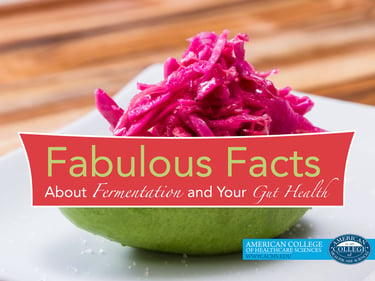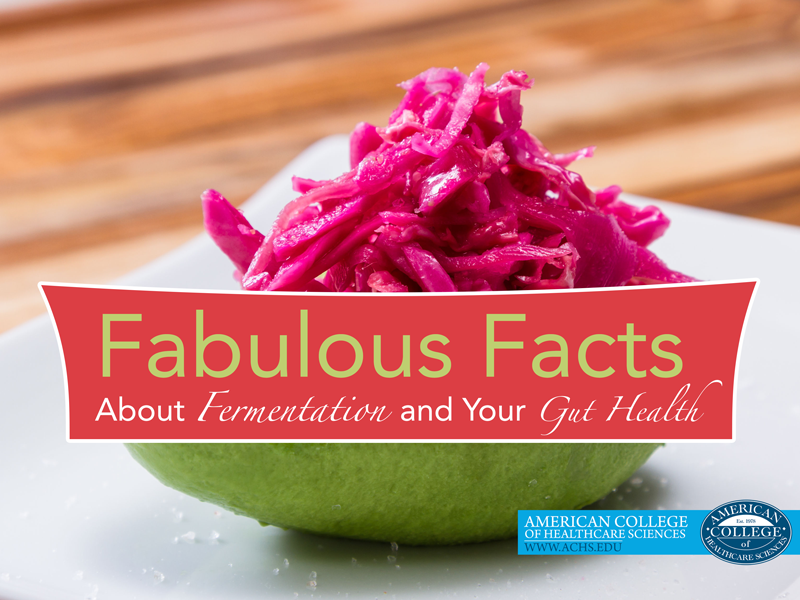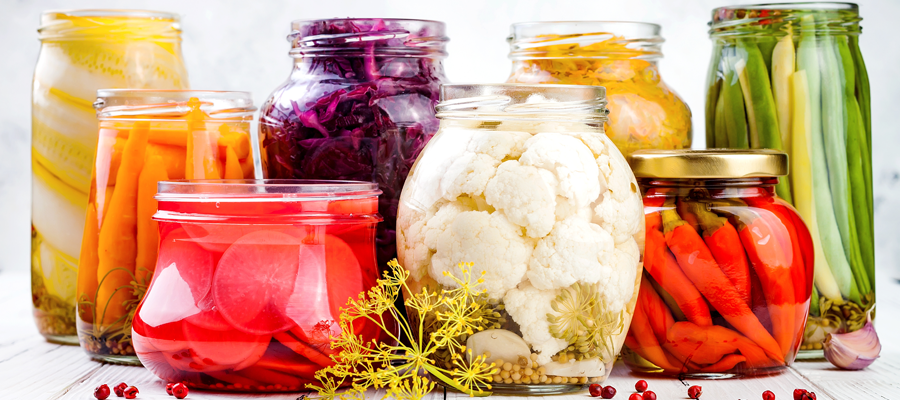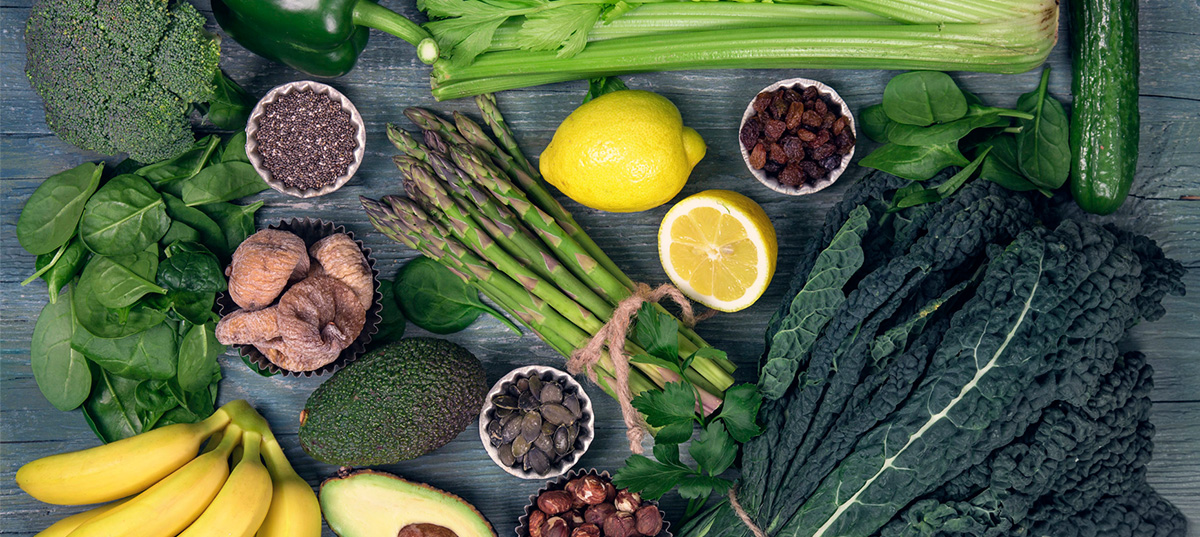 Walk through a supermarket or flip through a health magazine—it's hard to miss advertisements praising the benefits of probiotics or the “good” bacteria. These bacteria naturally reside in your intestines and help to produce nutrients, promote healthy digestion, and enhance immune function. Probiotics can be found in foods such as fermented dairy or vegetable products as well as in supplements. This is why people all over are turning to fermented foods, which recent studies have shown to provide numerous health benefits. These foods often have a sour or tangy flavor due to the presence of lactic acid—one of the main products of the fermentation process.[1]
Walk through a supermarket or flip through a health magazine—it's hard to miss advertisements praising the benefits of probiotics or the “good” bacteria. These bacteria naturally reside in your intestines and help to produce nutrients, promote healthy digestion, and enhance immune function. Probiotics can be found in foods such as fermented dairy or vegetable products as well as in supplements. This is why people all over are turning to fermented foods, which recent studies have shown to provide numerous health benefits. These foods often have a sour or tangy flavor due to the presence of lactic acid—one of the main products of the fermentation process.[1]
Fabulous Facts About Fermentation
Although sipping kombucha or eating yogurt with "live active cultures" might seem like the latest health fad, fermented foods have been consumed for centuries as part of traditional diets. Kimchi, for example, is a spicy Korean side dish usually made from cabbage; lassi is an Indian yogurt drink; and in West Africa, cassava is fermented to create a dish called garri.[2]
Whether the purpose of fermenting these foods was for flavor, preservation, or edibility, new research reveals just how beneficial probiotics can be for your health and well-being. Probiotics have been shown to[3]:
- improve the function of the immune system
- support blood pressure levels
- alleviate diarrhea
- enhance nutrient absorption
- relieve irritable bowel syndrome (IBS) and Crohn's disease
- support urinary tract health and discourage urinary tract infections (UTI)
- improve digestion of lactose for those with lactose intolerance
A recent study published in Psychiatry Research even suggests that a higher consumption of fermented foods may be associated with lower rates of social anxiety in young adults.[4] Additional studies are continuing to show the close relationship between cognitive function and gut health. For example, lab mice with lower numbers of good bacteria experienced impairments in both short- and long-term memory.[5] The reason for the decrease in the mice's healthy gut flora was due to a high-sugar, nutrient-deficient diet they were being fed for over a month.
We can assume then that our eating habits help to create an environment in our digestive tract that promotes or inhibits the growth of beneficial flora. Prebiotics are foods that act as a nutrient source for healthy gut bacteria (also known as the microbiome) and include fiber-rich foods such as Jerusalem artichokes, beans, asparagus, and bananas.[6] These and other fruits and vegetables, especially blueberries, have the potential to diversify the types of bacteria in our system.[7] Since different strains of bacteria offer unique health benefits, it is advantageous to cultivate a heterogeneous community in order to maximize their therapeutic potential.[8] For example:
- Lactobacillus rhamnosus enhances immunity in healthy adults
- Lactobacillus plantarum reduces inflammation caused by inflammatory bowel disease (IBD)
- Lactobacillus acidophilus lowers serum cholesterol levels, decreases colon polyps, and lowers the risk of colon cancer
The Sad Story of Sugar
On the other hand, a high-fat and/or high-sugar diet can impair the gut microbiome by altering the ratio of good to "bad" bacteria.[9] Artificial sweeteners, fast food, candy bars, soft drinks, and other "junk foods" lead to an overgrowth of pathogenic bacteria, which are microorganisms that cause disease and inflammation in the body.[10] Other factors, such as the overuse of antibiotics—from doctors' prescriptions to consumption of animals treated with antibiotics—and even stress are culprits that disrupt this delicate balance by killing off the good bacteria.
With so many health benefits, it might be tempting to rush off to the grocery store and buy the first item with the word "probiotic" on the label. However, it's still important to read the ingredient list and avoid other harmful additives that are often found in yogurt—high fructose corn syrup, artificial colors and flavorings, and trans-fats. The pasteurization process also destroys most of the beneficial bacteria found in conventional food products, so instead, look for foods that are prepared using natural lactic acid-fermenting methods.[11]
Start Fermenting!
Even better, try making your own fermented vegetables at home! There are many websites and books with recipes and useful video tutorials that walk you through the easy fermentation process. Kirsten and Christopher Shockey’s Fermented Vegetables is a good place to start. If you decide to take a supplement instead, or in addition to fermented foods, make sure that the capsules have a protective coating that will enable the bacteria to survive the low pH of the stomach. On the label, look for the words "enteric coated," which means that the capsules are made of a substance that will protect and slowly release the bacteria inside. This way, they are able to reach and colonize the intestines.[12] Many health food stores, supermarkets, and even online stores now carry these foods. When you're shopping, look for products that are raw, unpasteurized, and contain live, active cultures. Some examples include sauerkraut, miso paste, and pickles. Try adding a few of these fermented vegetables on top of your salad, layered in a sandwich, mixed into quinoa or your favorite whole grain, or as a tangy topping for tacos.
The word probiotic literally means "for life," which is a fitting description given the significant impact these microorganisms have on our overall health. So in addition to exercise and eating a nutritious diet, consuming a good source of probiotics should also be included as part of a healthy lifestyle. There are trillions of bacteria that make their home in our digestive tract, and it will be fascinating to learn more about this mutualistic relationship as new research continues to emerge.
What fermented foods do you enjoy? Share your recipes and ideas in the comments!
This article is for informational purposes only. It is not intended to treat, diagnose, cure, or prevent disease. This article has not been reviewed by the FDA. Always consult with your primary care physician or naturopathic doctor before making any significant changes to your health and wellness routine.
Disclosure of Material Connection: I am a guest contributor to American College of Healthcare Sciences, the Institution that publishes this blog. However, all opinions are my own. This blog may contain affiliate links. I am disclosing this in accordance with the Federal Trade Commission’s 16 CFR, Part 255: “Guides Concerning the Use of Endorsements and Testimonials in Advertising.”
[1] Molds, yeasts, and bacteria use fermentation to extract energy from carbohydrates. They break complex sugar molecules into simpler ones forming ethanol, lactic acid, carbon dioxide, and water as the products.
[2] Foroutan, R. (2012, February 20). The History and Health Benefits of Fermented Food. Retrieved September 3, 2015, from http://www.foodandnutrition.org/Winter-2012/The-History-and-Health-Benefits-of-Fermented-Food/
[3] Hasan, M., Sultan, M., & Mar-E-Um, M. (2014). Significance of Fermented Food in Nutrition and Food Science. Journal of Scientific Research, 6(2), 373-386. Retrieved July 1, 2015, from http://www.banglajol.info/index.php/JSR/article/view/16530/13083
[4] Hilimire, M., DeVylder, J., & Forestell, C. (2015). Fermented foods, neuroticism, and social anxiety: An interaction model. Psychiatry Research, 228(2), 203-208. doi:10.1016/j.psychres.2015.04.023
[5] Magnusson, K., Hauck, L., Jeffrey, B., Elias, V., Humphrey, A., & Nath, R. et al. (2015). Relationships between diet-related changes in the gut microbiome and cognitive flexibility. Neuroscience, 300, 128-140. doi:10.1016/j.neuroscience.2015.05.016
[6] Jardine, M. (2014, August 27). Seven Foods to Supercharge Your Gut Bacteria. Retrieved September 3, 2015, from http://www.pcrm.org/media/online/sept2014/seven-foods-to-supercharge-your-gut-bacteria
[7] Ibid.
[8] Parvez, S., Malik, K., Kang, S., & Kim, H. (2006). Probiotics and their fermented food products are beneficial for health. Journal of Applied Microbiology, 100(6), 1171-1185. Retrieved July 1, 2015, from http://onlinelibrary.wiley.com/doi/10.1111/j.1365-2672.2006.02963.x/full
[9] Magnusson, K., Hauck, L., Jeffrey, B., Elias, V., Humphrey, A., & Nath, R. et al. (2015). Relationships between diet-related changes in the gut microbiome and cognitive flexibility. Neuroscience, 300, 128-140. doi:10.1016/j.neuroscience.2015.05.016
[10] Ibid.
[11] Mercola, J. (2014, June 10). Fermented Foods – Your Ultimate Guide to Fermented Food Lists. Retrieved July 1, 2015, from http://articles.mercola.com/fermented-foods.aspx
[12] Ibid.






